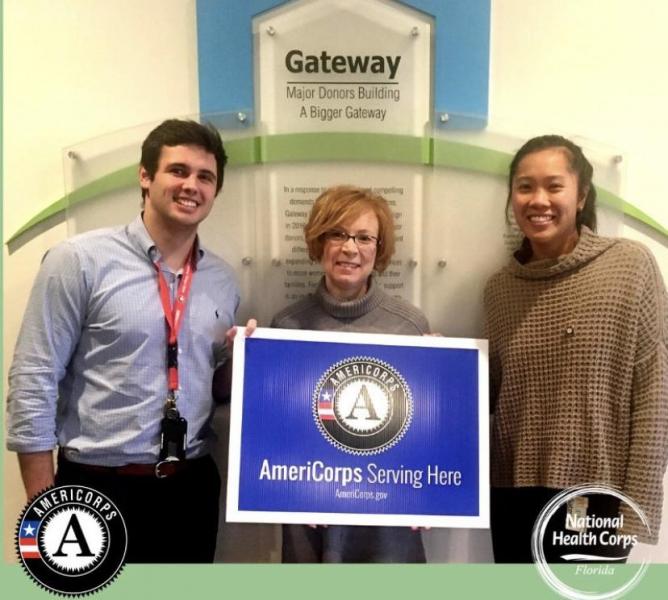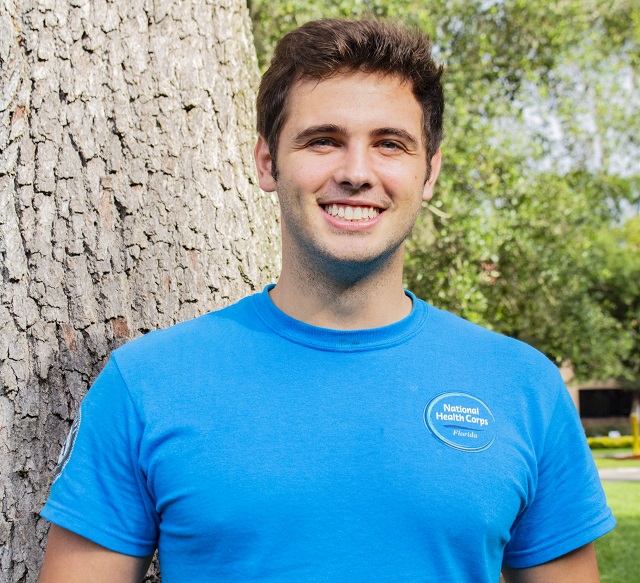“If I go back out there, I know I am going to die.” It is not uncommon to hear a patient express this sentiment during  my time serving within Gateway Community Services Detoxification Center, a medical facility that allows individuals to detoxify from substances in a safe, monitored manner. For many patients who come from underserved and disadvantaged backgrounds, Gateway is their last hope for change; an opportunity to be rescued from their addiction and to start anew. Given their circumstances, it truly can be a life or death situation.
my time serving within Gateway Community Services Detoxification Center, a medical facility that allows individuals to detoxify from substances in a safe, monitored manner. For many patients who come from underserved and disadvantaged backgrounds, Gateway is their last hope for change; an opportunity to be rescued from their addiction and to start anew. Given their circumstances, it truly can be a life or death situation.
Substance use disorders are widely misunderstood. The general assumption is that a substance use disorder is simply the result of poor personal choice and a lack of will of the individual suffering from this disease. This assumption is both false and detrimental to the individuals whose lives are drastically altered by a substance use disorder. A substance use disorder is a multifactorial disease that has both underlying genetic and physiological components as well as social, environment, and mental health components which makes it vastly challenging to address.
Within my time serving at Gateway, I have served many individuals who started utilizing substances before the age of fifteen, sometimes even before the age of ten. A notable percentage are victims of severe trauma such as significant emotional, sexual, and physical abuse, sex trafficking, abandonment as child, and unexpected deaths of loved ones. It is unfortunate that more often than not these individuals have endured not just one of these traumatic events but rather a multitude of them. Lacking the support and resources to effectively cope with these events, they have turned to substances to “numb out” or distract themselves from these tragedies. With persistent, frequent use of substances, their bodies adapt and develop a physical dependence. In this state, continuation of the drug must be maintained or their bodies begin to experience severe physical and mental withdrawal symptoms that cause an individual to “feel like I am dying.” When these individuals are struggling to cope with their traumatic experiences and are physically unable to function without utilizing a substance, it becomes clear why they go through extreme lengths to continue to use.
 As a patient navigator that engages with individuals with substance use disorders, I have the opportunity to identify the barriers they face and connect them with rehabilitation programs, transitional housing, trauma counseling, or other resources they may need to circumvent these barriers and start the arduous journey to recovery. Many of these individuals have suffered traumatic events where they have no social support or resources available to them. Yet, despite these odds, they are still fighting for their recovery and their lives. By connecting them with needed resources, guidance, and support, I am guiding the way to allow these individuals to continue to fight.
As a patient navigator that engages with individuals with substance use disorders, I have the opportunity to identify the barriers they face and connect them with rehabilitation programs, transitional housing, trauma counseling, or other resources they may need to circumvent these barriers and start the arduous journey to recovery. Many of these individuals have suffered traumatic events where they have no social support or resources available to them. Yet, despite these odds, they are still fighting for their recovery and their lives. By connecting them with needed resources, guidance, and support, I am guiding the way to allow these individuals to continue to fight.
Guiding the way to recovery is not always easy. To best assist the clients I serve, I ask what factors make it difficult for them to maintain sobriety. Clients typically share their life story and walk me through the trauma and difficulties they have faced. Initially, hearing these stories and the raw emotion associated with them often left me lost for words. When life handed these individuals adversity after adversity, I struggled to see how I, coming from a more privileged background, could appropriately empathize with them and assure them that there was hope for a better life. With the guidance and support of my supervisor and trauma counselors at my host site as well as the motivational interviewing I learned from the National Health Corps, I grew to overcome this challenge to better provide the hand of support for those desperately reaching out for it.
While serving in this position has been difficult at times, it has nonetheless been incredibly rewarding. This opportunity to illuminate the path to recovery for individuals still fighting against the odds has been a truly empowering and invaluable experience. My time at Gateway has opened my eyes to the great need that exists for those struggling with substance use disorders. Rather than shy away from this need, I am eager to rise and meet it.

This blog was authored by NHC Florida member John Toms.
John serves at Gateway Community Services as a Patient Navigator.
